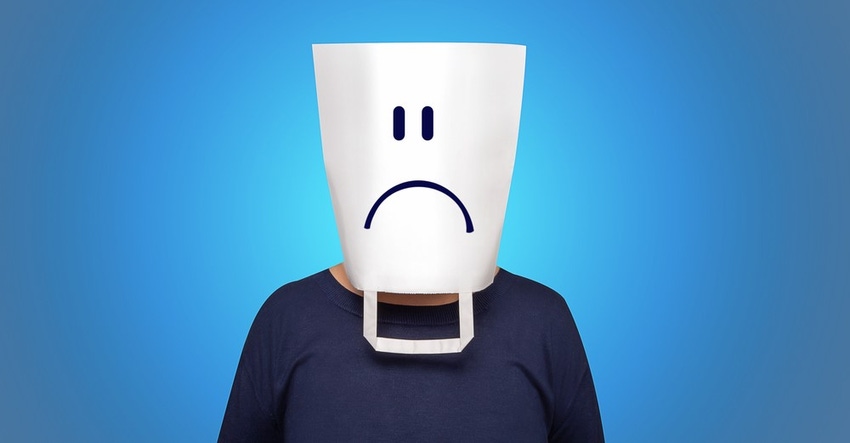Feeling Blue? Now’s the Time for Self-Storage Operators to Focus on Their Mental Health
It’s pretty difficult to be a human right now. So, it’s no surprise that many people are struggling with their mental health. Fortunately, the shroud around this topic is slowly falling, and it’s more acceptable to talk about it and seek help. Two state self-storage associations are aiding in this endeavor during May, which is Mental Health Awareness Month. Read what they’re doing and get advice on how to help yourself and others when it’s more than just feeling blue.

Over the past few years, there has been a huge shift in how we perceive our mental health. While this subject has always been important, there’s been greater focus due to the pandemic, an increase in public shootings, political upheaval and the desire for better work-life balance. There’s also a willingness, particularly from younger generations, to openly discuss anxiety, depression, behavior and eating disorders, and other issues. Simply put, we’re talking more about mental health these days, and that’s a very good thing. May is also Mental Health Awareness Month.
These conversations are happening everywhere—in schools and workplaces, on social media, in news stories and magazines, and even in the entertainment world. Dozens of celebrities and sports figures have come forward to discuss their struggles with mental health. At the recent Inside Self-Storage World Expo, keynote speaker and gold-medal gymnast Dominque Dawes shared her own story and how she nurtures her wellbeing.
It isn’t just talk, either. Employers, including my own, are placing a greater emphasis on mental health by introducing assistance programs. In fact, it’s even becoming standard for companies to offer coverage for therapy, wellness apps and financial counseling, according to a recent article on LinkedIn. Other improvements include exploring the four-day work week, remote working and hybrid models, more emphasis on technology in the workplace, and even perks such as “meeting-free Fridays” and catered food.
There’s also more research being done on mental health. Recently, two self-storage industry associations partnered with the University of Southern California (USC) to assist in surveys. The Texas Self Storage Association is inviting its members to participate in a research study as part of a project to create suicide-prevention training materials. It aims to better understand suicide prevention by exploring how nonmental health industries serve people experiencing life disruptions. Self-storage operators work with people who are often under a life transition, even duress, that can affect their wellbeing.
Another USC study is examining the effects of housing insecurity on the self-storage industry. In its newsletter this week, the Arizona Self Storage Association invited its members to take an anonymous online survey about how the housing crisis has affected their jobs and tenants. The research aims to help at-risk customers connect with support as well as provide self-storage employees with resources on how to interact with these tenants more effectively.
It’s yet another topic that storage operators are knowledgeable. While it isn’t new, more property managers are reporting an increase in tenants either spending more time in their units or attempting to live in the space. Others have experienced an increase in transient populations loitering around their facilities.
Operators are also dealing with greater friction with their tenants. The pause on rental increases and late fees instituted during the first couple of years of the pandemic have all but evaporated. But storage customers aren’t just facing a higher rental rate. Rising costs are happening across every aspect of their lives. It’s a lot to take in and not everyone can keep their faculties, which can lead to an increase in conflicts between operators and their tenants. This, in turn, can cause storage owners and managers to struggle with their own mental health, which can lead to low morale or job burnout.
While everyone will experience ups and downs, it’s vital to understand whether you’re just out of sync at the moment or suffering from something more serious. According to the Mayo Clinic, these are some signs and symptoms to watch for:
Confused thinking or reduced ability to concentrate
Excessive fears or worries, or extreme feelings of guilt
Extreme mood changes of highs and lows
Withdrawal from friends and activities
Significant tiredness, low energy or problems sleeping
Inability to cope with daily problems or stress
Problems with alcohol or drug use
Major changes in eating habits
If you or anyone you know is exhibiting any of these, it’s imperative to seek help. The National Institute of Mental Health offers a number or resources including crisis and helplines, and advice on how to find treatment.
Self-care has never been more important. This includes your mind, body and spirit. Take breaks at work, build up your resilience, enjoy hobbies and family, and focus on creating good habits that support your wellbeing. Join Self-Storage Talk, the industry’s most active online community. You can make friends, ask questions or just vent about a bad day.
If you are struggling, don’t be afraid to find help. The stigmas around mental health are crumbling more every day. Now’s the time to improve yours.
If you or someone you know is suicidal, call the Suicide & Crisis Lifeline at 988. It provides 24/7, free and confidential support for people in distress, prevention and crisis resources for you or your loved ones, and best practices for professionals in the United States.
About the Author(s)
You May Also Like





